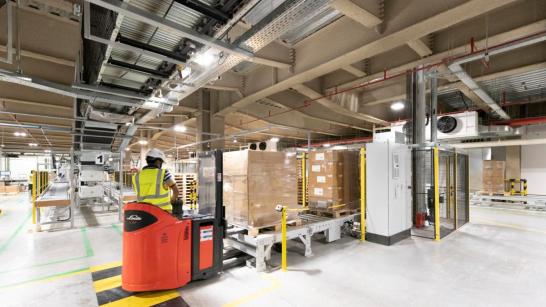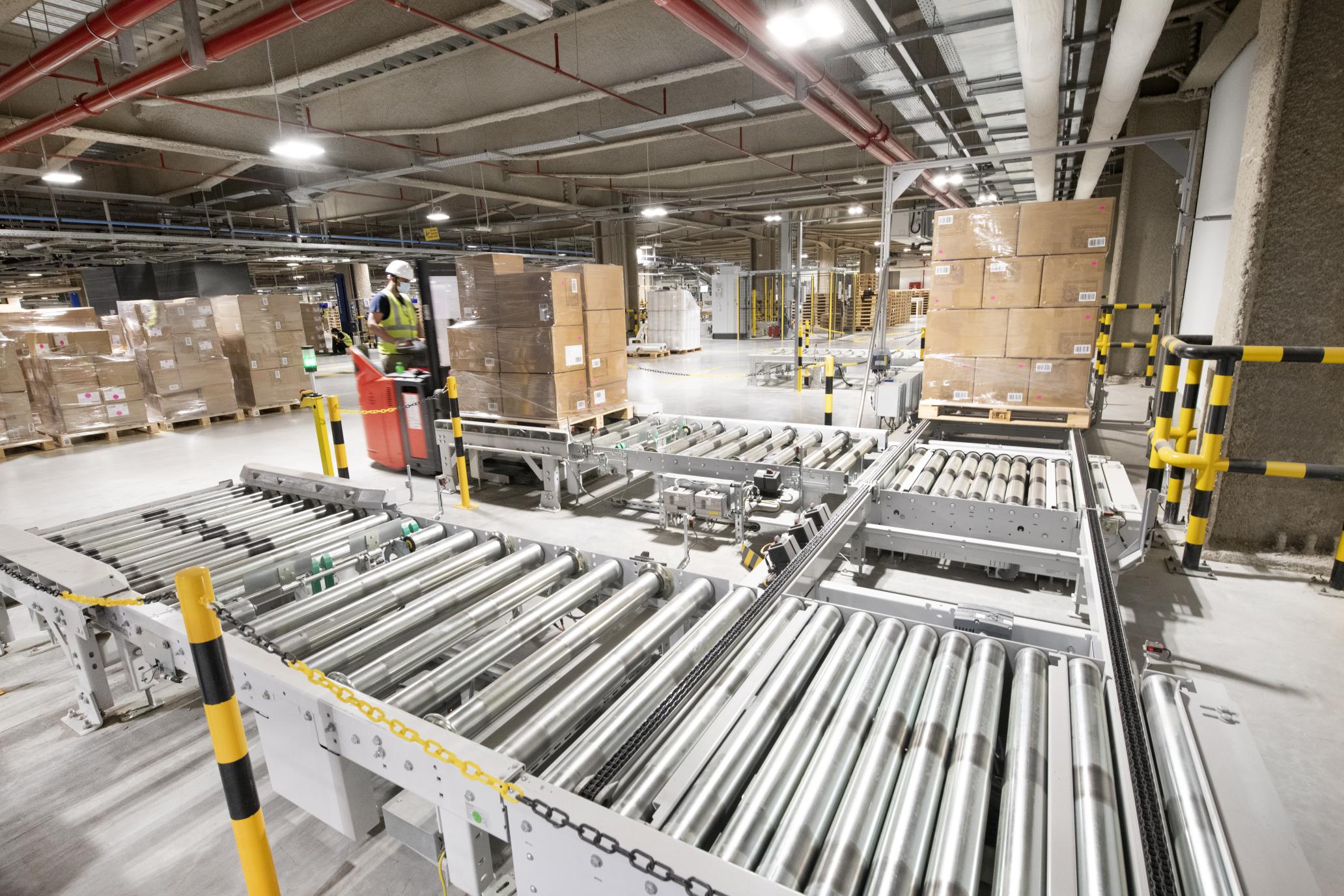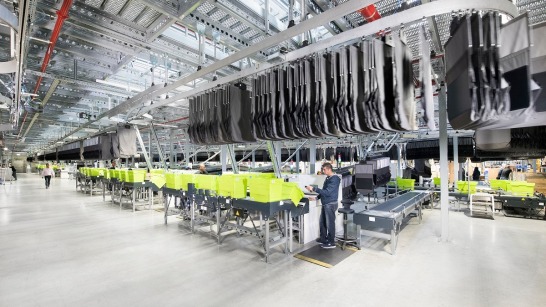Easier Than Planning a Kitchen at a Well-Known Swedish Furniture Store
The working title for the new tool was “3S—simple, smart, scalable” and the cross-brand project team and the Digital Campus certainly saw to it that the tool fulfilled this brief. The customer advisors can use the app on their laptop or tablet while at the customer’s site to put together a conveyor system that is precisely tailored to the requirements of the individual operation. A well thought out menu design guides the user through key questions for each project: How big are the pallets? How delicate are the goods that are to be transported? How big is the storage space? What are the environmental conditions? Once all the relevant boxes have been checked, the planning tool opens. Various modules can be put together at this stage, in any combination—from the loading point and the digital pallet check at incoming goods to any transfer points and the conveyor with integrated scale for the package weight check shortly before dispatch. “The direction of the material flow on the conveyor technology is clearly illustrated by means of arrows and the tool does not allow unsuitable combinations of modules,” explains Buchmann. “This guarantees that the individual plans can also be implemented later exactly as designed.” Once the planning process is complete, the desired conveyor line can be easily displayed in a 3D view with just one click and presented to the customer. If everything meets the customer’s expectations, the ConfiKIT then generates a quotation in the blink of an eye, including transport and assembly costs if desired, a process which used to take several days. “In this way, we are not only making the planning process much easier for the sales consultants at STILL and Linde Material Handling, but we have also carved out a significant time advantage,” says Buchmann, summing up the benefits. “The new tool plays a key role in making Dematic’s expertise available to colleagues from the forklift segment in a fast, intuitive, and competitive way,” adds van Bergen.
Achieving Goals Even Faster Using Modular Building Blocks
The improved planning and quotation process alone creates a time saving of around four weeks, but even the processes of assembly and commissioning on site will be able to happen much more quickly in the future. As part of the Conveyor ConfiKIT project, Dematic has adapted the product portfolio to conveyor belts and has developed a building block, or a kit, made up of standardized modules, which is the perfect complement to the digital tool. What makes the individual elements unique is that specific components are already pre-assembled so the conveyor just has to be fitted together at the customer’s site. This helps to significantly speed up the installation processes on-site even further and means that customers can benefit the automated solution even sooner.
The Dematic Conveyor ConfiKIT is just one example of a successful collaboration with great potential. The app demonstrates how the KION brands can achieve even more for their customers by working together and how smart digital tools are paving the way in the long term for automation to progress in both large and small applications.


_image_546x307.jpg)
